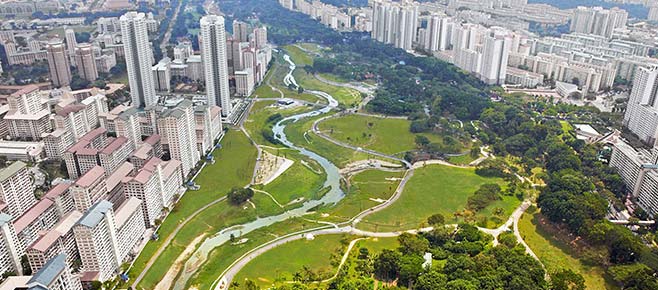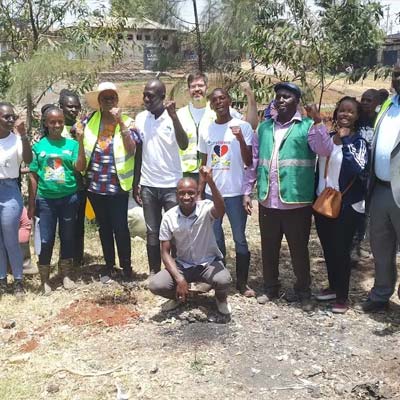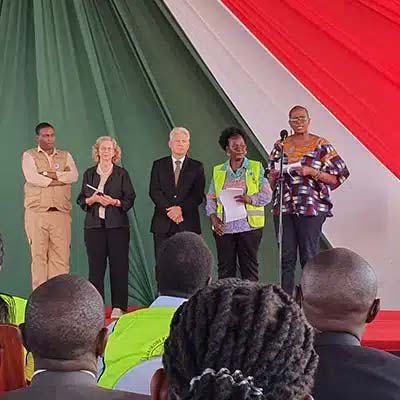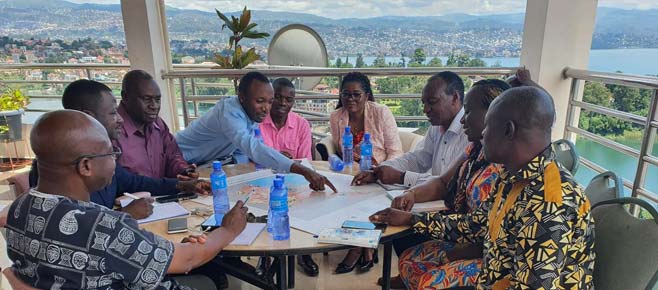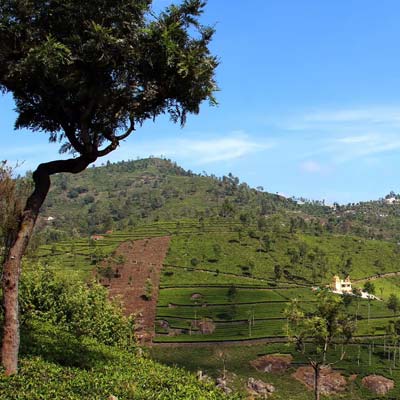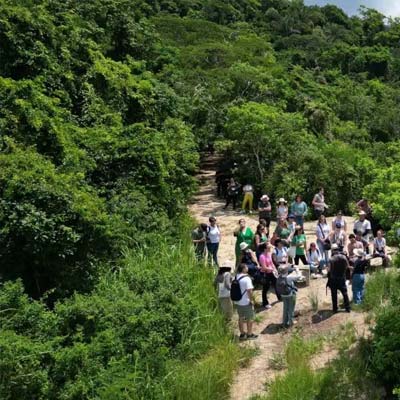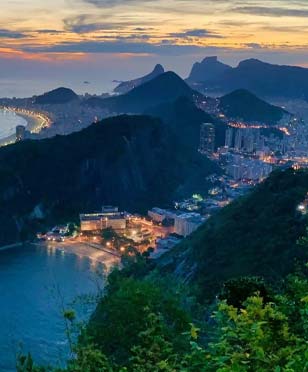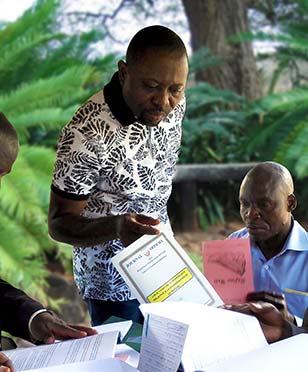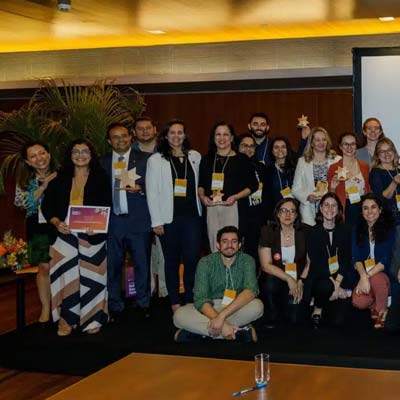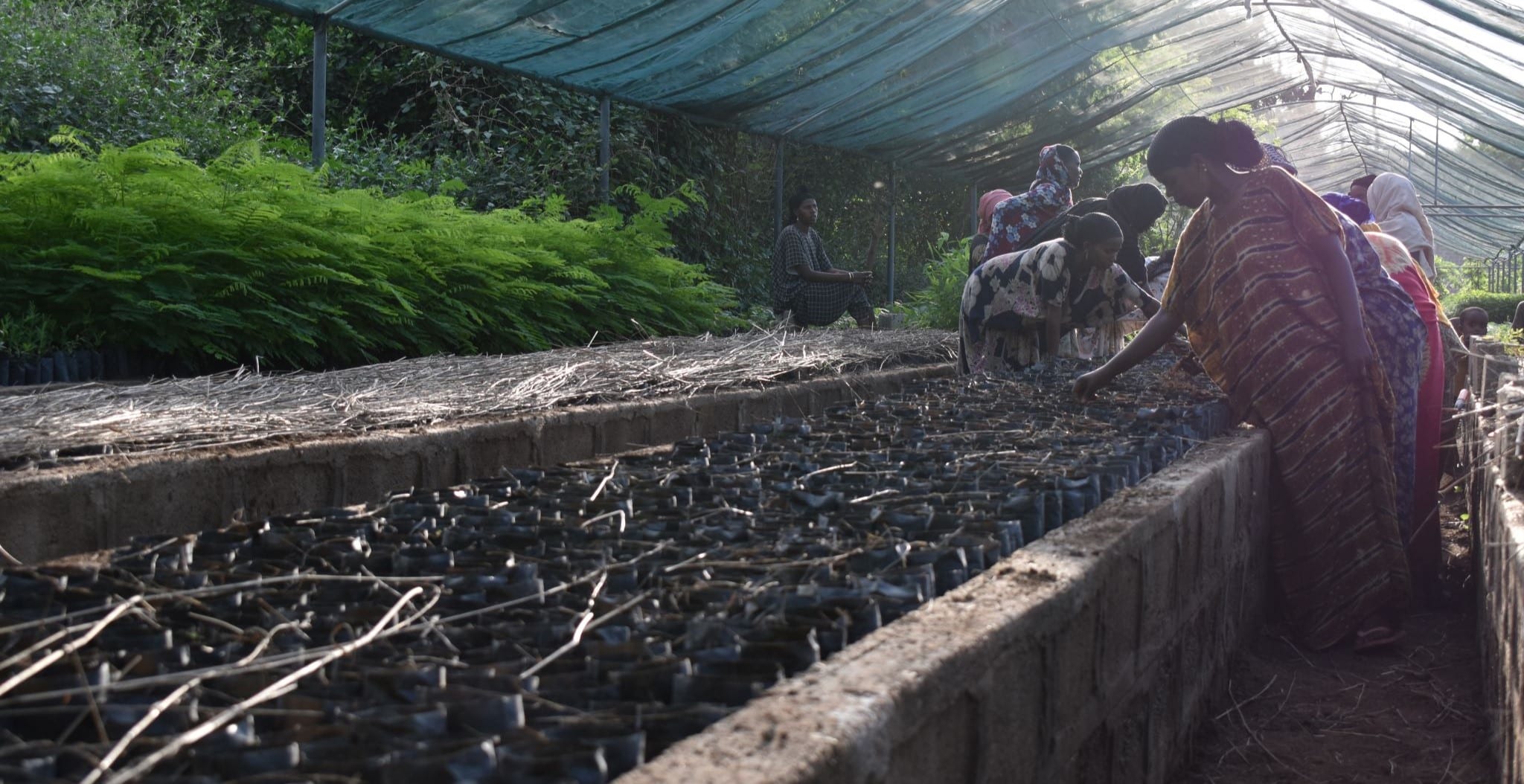26 / 26
- Abu Bakar, Nor Azlina. 2018. “Why Ecotourism Failed as an Alternative Livelihood in Marine Park: The importance of community’s involvement in park management”. Environment-Behaviour Proceedings Journal. 3.
- Baran, Perver K., Payam Tabrizian, Yujia Zhai, Jordan W. Smith & Myron F. Floys. 2018. “An Exploratory Study of Perceived Safety in a Neighborhood Park Using Immersive Virtual Environments”. Urban Forestry & Urban Greening, Volume 35.
- Bardekjian, Adrina C., Lorien Nesbitt, Cecil C. Konijnendijk, Barend T. Lötter. 2019. “Women in urban forestry and arboriculture: Experiences, barriers and strategies for leadership”. Urban Forestry & Urban Greening, Volume 46.
- Blackman, Allen, and Peter Veit. 2018. “Titled Amazon Indigenous Communities Cut Forest Carbon Emissions”. Ecological Economics. Volume 153. Pages 56-67.
- C40 Cities Climate Leadership Group. 2019. “Equitable Impacts: Executive Guide”. C40 Knowledge Hub.
- C40 Cities Climate Leadership Group. 2019. “Inclusive Community Engagement: Executive Guide”. C40 Knowledge Hub.
- C40 Cities Climate Leadership Group. 2019. “Roadmap for Inclusive Planning – Policy Recommendations”. C40 Knowledge Hub.
- CSSP. 2019. “Key Equity Terms and Concepts: A Glossary for Shared Understanding”. Washington, DC: Center for the Study of Social Policy.
- Ding, Helen, Peter Veit, Erin Gray, Katie Reytar, Altamirano Juan-Carlos, Allen Blackman, and Benjamin Hodgdon. 2016. “Climate Benefits, Tenure Costs. The Economic Case For Securing Indigenous Land Rights in the Amazon”. Washington, DC: World Resources Institute.
- FAO. 2016. “Guidelines on urban and peri-urban forestry”. Food and Agricultural Organization of the United Nations.
- Gashu, Kassahun, Gebre-Egziabher, Tegegne & Wubneh, Mulatu. 2019. “Local communities’ perceptions and use of urban green infrastructure in two Ethiopian cities: Bahir Dar and Hawassa”. Journal of Environmental Planning and Management.
- Habitat International Coalition. n.d.
- Hart, Maria, Jillian Du, and Caroline Coccoli. 2020. “How to prevent city climate action from becoming ‘green gentrification’”. Greenbiz.
- Herz, Steven, Antonida Vina, and Johnathan Sohn. 2007. “Development Without Conflict. The business case for community consent”. Washington, DC: World Resources Institute.
- IHC Global. n.d.
- Jansson, Marit, Hanna Fors, Therese Lindgren, and Bjorn Wistrom. 2013. “Perceived personal safety in relation to urban woodland vegetation – A review.” Urban Forestry & Urban Greening 127-133.
- Johansson, Maria, Kristina Johansson, Elias Andersson. 2018. “#Metoo in the Swedish forest sector: testimonies from harassed women on sexualised forms of male control”. Scandinavian Journal of Forest Research, Volume 33, Pages 419-425.
- Leisher, C., Temsah, G., Booker, F. et al. 2016. “Does the gender composition of forest and fishery management groups affect resource governance and conservation outcomes? A systematic map”. Environ Evid5, 6.
- Macqueen, D.J., Dufey, A. and Patel, B. 2006. “Exploring fair trade timber: A review of issues in current practice, institutional structures and ways forward”. IIED Small and Medium Forestry Enterprise Series No. 19. IIED, Edinburgh, UK.
- Maruthaveeran, Sreetheran & Konijnendijk van den Bosch, Cecil. 2014. “A socio-ecological exploration of fear of crime in urban green spaces –A systematic review”. Urban Forestry & Urban Greening.
- Mummert, Jared. 2018. “Understanding Equity in Parks and Recreation”. OpenSpace Blog. National Recreation and Parks Association.
- Munang, Richard, Jesica Andrews, Keith Alverson, Desta Mebratu. 2014. “Harnessing Ecosystem-based Adaptation to Address the Social Dimensions of Climate Change”. Environment Magazine.
- Poudyal, M., Jones, J., Rakotonarivo, O. S., Hockley, N., Gibbons, J. M., Mandimbiniaina, R., Rasoamanana, A., Andrianantenaina, N. S., & Ramamonjisoa, B. S. 2018. “Who bears the cost of forest conservation?”. PeerJ, 6, e5106.
- Pullin AS, Bangpan M, Dalrymple S, Dickson K, Haddaway NR, Healey JR, Hauari H, Hockley N, Jones JPG, Knight T, Vigurs C, Oliver S. 2013. “Human well-being impacts of terrestrial protected areas”. Environmental Evidence. 2013;2(1):1–19.
- Rangwala, Lubaina, Katerina Elias-Trostmann, Lauretta Burke, Retno Wihanesta, and Mandakini Chandra. 2018. “Prepared Communities: Implementing the Urban Community Resilience Assessment in Vulnerable Neighborhoods of Three Cities”. World Resources Institute and Cities Alliance.
- Rights and Resources Initiative. 2018. “A Global Baseline of Carbon Storage in Collective Lands – Indigenous and Local Community Contributions to Climate Change Mitigation”. Washington, DC: RRI
- Rist, Lucy, R. Uma Shaanker, E. J. Milner-Gulland and Jaboury Ghazoul. 2010. “The Use of Traditional Ecological Knowledge in Forest Management: an Example from India”. Ecology and Society 15(1): 3.
- United Nations Framework Convention on Climate Change. 2016. “Guidelines or Other Tools for Integrating Gender Considerations in Climate Change Related Activities under the Convention”. UNFCCC.
- UN-REDD Programme 2011. “The Business Case For Mainstreaming Gender in REDD+”. FAO, UNDP, UNEP.
- UN-REDD Programme 2013. “Guidelines on Free, Prior and Informed Consent”. FAO, UNDP, UNEP.
- Wilson, Emma. 2009. “Company-Led Approaches to Conflict Resolution in the Forest Sector”. The Forest Dialogue.
- WHO. n.d. “Health Equity”. World Healh Organization.
- Wolch, Jennifer R., Jason Byrne, Joshua P. Newel. 2014. “Urban green space, public health, and environmental justice: The challenge of making cities ‘just green enough’”. Landscape and Urban Planning, Volume 125, Pages 234-244.
- Zacarias, Daniel & Loyola, Rafael. 2017. “How Ecotourism Affects Human Communities”. Ecotourism’s promise and peril: a biological evaluation, Chapter in book: 9. Springer.
26 / 26
